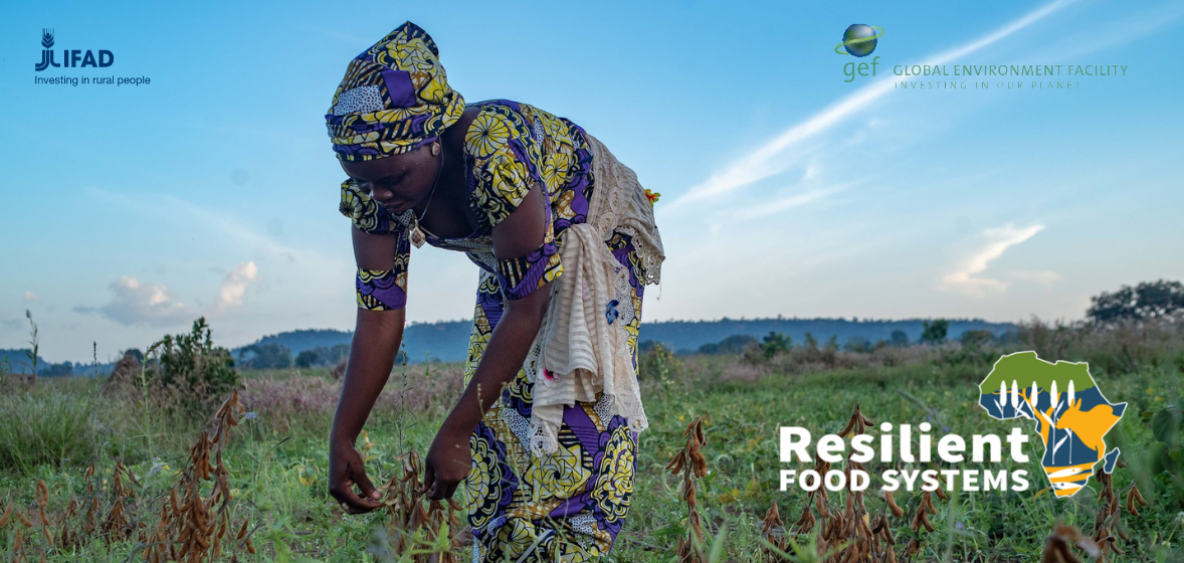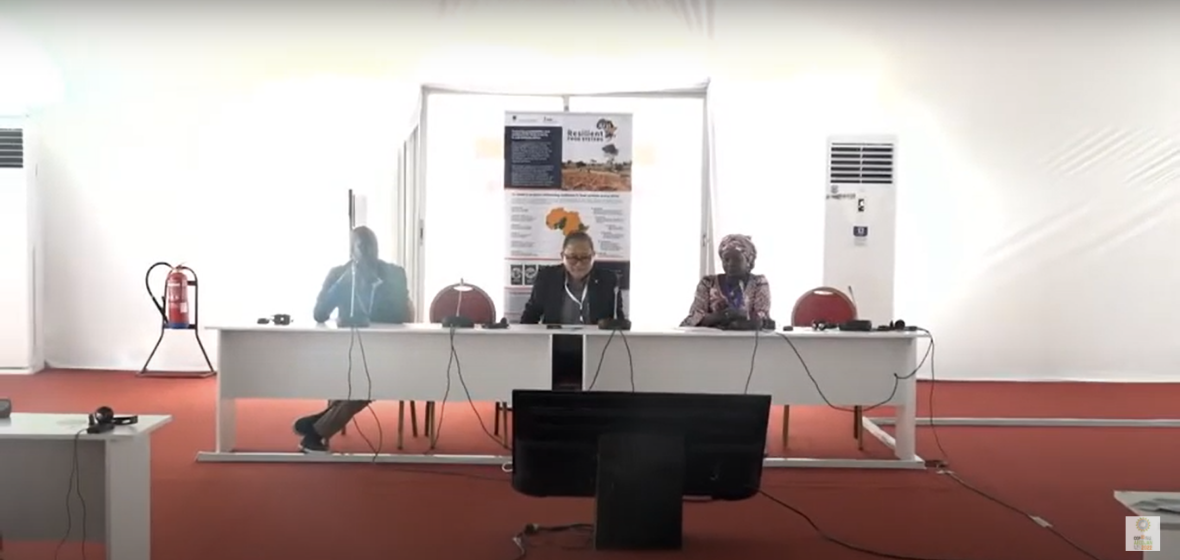
The UNCCD COP15 side event highlighted the innovative approaches of the RFS programme, focusing specifically on the promotion of integrated approaches to sustainable natural resource management and the linkages to food and nutrition security outcomes for smallholder farmers.
From 9 to 20 May 2022, the United Nations Convention to Combat Desertification (UNCCD) held the 15th session of the Conference of the Parties (COP15) in Abidjan, Côte d’Ivoire.
UNCCD COP15 convened under the theme of ‘Land. Life. Legacy: From scarcity to prosperity’, underscoring the importance of environmental transformation that is sustainable into future generations, leaving no one behind.
Nearly 7000 delegates from 196 countries attended the conference which concluded with new decisions to help restore one billion hectares of land between now and 2030, create land use systems that are resilient to climate shocks, address desertification and land degradation as drivers of forced migration, and strengthen inputs from women and youth in land management.
As active advocates for food systems transformation, the International Fund for Agricultural Development (IFAD), with support from the Global Environment Facility (GEF) and in collaboration with partners of the Resilient Food Systems (RFS) programme including World Agroforestry (ICRAF) the United Nations Development Programme (UNDP) and RFS project teams from Nigeria and Senegal, held a side event at COP15 on 14 May. Entitled “Integrated approaches for sustainable land management in sub-Saharan Africa and South-East Asia”, the side event highlighted the innovative approaches of the RFS programme, focusing on integration. By presenting experiences from an IFAD-led project in Cambodia in the session, the presenters put forward a strong argument for cross-country learning and knowledge management to meet common environmental goals.

The side event began with a presentation from IFAD project leader Jonky Tenou, who gave an overview of the RFS programmatic structure to the attendees.
In his presentation, Jonky Tenou discussed integrating food systems resilience across sectors, providing an example with the RFS Kenya project which has not only made a business case for investing in water conservation for big companies like Coca-Cola but has also restored more than 17,000 ha of agricultural land.
Jonky Tenou also introduced a recurring theme of the side event which was results longevity. With the RFS programme entering its final phases, facilitating resilient project communities necessitates independence which the country case studies from Nigeria and Senegal would go on to demonstrate in the first session.
Rhoda Dia, Project Lead for RFS Nigeria, asserts gender integration into all levels of the project framework and has seen considerable success as a result, though it wasn’t necessarily easy. “Continuous awareness and sensitization at all levels is critical,” she told the audience.
The RFS Nigeria project, which prioritizes women beneficiaries, promotes the uptake of alternative livelihood activities to complement agricultural innovation for a more holistic approach to food security. Activities mentioned in the session included addressing aflatoxin risks in food, introducing energy-efficient cookstoves, combatting malnutrition through dairy-goat rearing, and beekeeping.
“… beneficiaries’ empowerment extends beyond project design interventions. It is imperative that empowerment interventions are chosen and driven by the beneficiaries themselves, creating a sense of ownership.” - Rhoda Dia, RFS Nigeria Project Lead
Beekeeping in particular has caused a stir in the RFS Nigeria project site due to its incredible success. Rhoda Dia shared an image of farmer Janet Shiga, who undertook the activity and is now able to pay her children’s school fees.
When asked about sustainability of this activity during the question-and-answer portion of the event, Rhoda Dia asserted that the reinvestment rate is extremely high due to the undeniable benefits seen in the community and beyond. She stated that the project connected the community with markets that have such a high demand for the producers’ honey that they are not able to meet it!
Similarly in Senegal, targeting women and youth is an integral part of ensuring sustainability of the project results.
Amath Pathe Sene, Lead of Environment and Climate for West and Central Africa at IFAD, stated that about 70% of the population of Senegal is around 19 years old, stressing the importance of access to knowledge for this generation who will become major players in the agricultural sector.
In RFS Senegal project sites, improving agricultural production is not seen as the only key to improving food security. Amath Pathe Sene discussed the relationship between alternative livelihood activities and project uptake, pointing towards the relationship that Senegalese project beneficiaries have with the mangrove forests that border their project sites.
Mangroves host fragile ecosystems that are extremely vulnerable to the effects of climate change. Their deterioration affects surrounding communities that have traditionally harvested food like fish and oysters. While people are spending more time looking for alternative food sources, they have less time for project participation, so RFS Senegal has integrated this into their project as well, ensuring the sustainability of this traditional food source.
“We can work with local governments and maintain the momentum of the work and ensure sustainability of the implementation of the work … We have to ensure that everything is done naturally by primary actors who are at the local level, this includes the youth, the local communities, and women.” - Amath Pathe Sene, Lead of Environment and Climate for West and Central Africa at IFAD
Integrating
knowledge management and sustainability of project results was a key theme to
the questions posed in the question-and-answer session, and in the later panel
discussion.
With all the lessons learned from challenges and successes faced by the programme, continuity of learning and accessible knowledge products are critical tools for informing the foci of the RFS programme as it enters its final stages, and for other food security actors working in different regions or at different scales.
The RFS programme is committed to integrated knowledge management and hosts several platforms for sharing such as the SmartME database and the online Knowledge Centre, but as Jonky Tenou told the audience on May 14th, we are always striving towards more ways to advance our approach.
To conclude the session, CIFOR-ICRAF Chief Scientist Fergus Sinclair summarized integrating knowledge management towards action with the following focus points:
Subscribe to our monthly newsletter to receive updates on stories directly from the field across all our projects, upcoming events, new resources, and more.